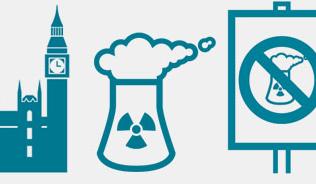The IES invites members to join our new special interest groups to input your expert opinions on the research that the IES undertakes in different professional areas. There will initially be four groups created in this pilot scheme.
Over the past few years the needs of the air quality and higher education communities have been well-served through the activities of the committees of IAQM and CHES respectively. We are now hoping to replicate that success in other key areas within the IES professional membership.
These groups offer members a unique opportunity to steer the direction of research and guidance at the forefront of the sector, an opportunity that is not available elsewhere for environmental scientists.
The four groups that will be initially created are:
| Contaminated Land What are the current research, guidance and training needs of experts working in the field of Contaminated Land? |
Environmental Impact / Risk Assessment What are environmental scientists needs within the environmental management and risk assessment processes? |
| Energy What are the research, guidance and training needs of scientists working in the energy sector? |
Environmental Science in Government Open to members who work for local or central Government to explain their unique environmental science issues and research and training requirements. |
Why join a special interest group?
You will be in a position to influence the research, guidance that the IES produces and the events that we run. Do you feel that the IES doesn't do enough in your professional area? This is your chance to ensure that our work is focussed towards your professional needs. You can also raise awareness about best practice initiatives and research that you may have been working on and drive progress in your sector. Active participation in the group will also count towards your annual CPD requirements.
What's involved?
Initially group members will be invited to discuss setting priorities for research and guidance within the group. Once a list of priorities has been established the IES will begin to examine the issues as they are prioritised for the sector. Group members will then be invited to participate directly in creating the guidance or research report and acknowledged as authors in the final document.
Are there any constraints to group membership?
None at all. These groups will aim to distil information from professionals working within the sectors pertinent to the special interest group but the groups are equally as open to members working in other sectors with an interest in the outcomes of a different working group. The IES is keen to create groups that represent the sector in the widest sense: we are therefore looking for a wide geographic spread and members representing different stages of careers.
Ok, I'm convinced - how do I sign up?
For more information on the different groups and how to get involved click the hyperlinks in the table above.


